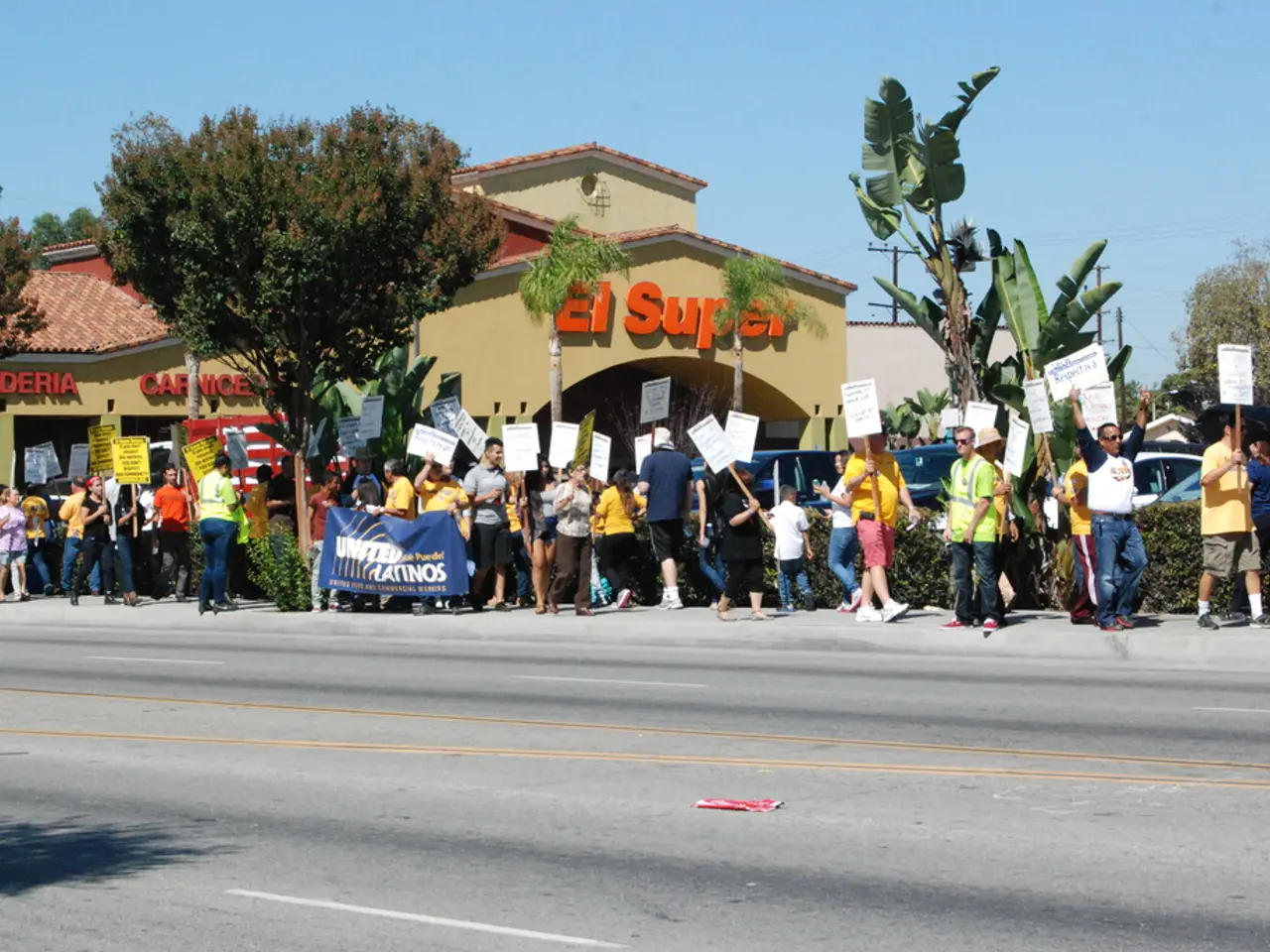Organizing a Grassroots Movement for Political Elections
In the world of political campaigns, a dedicated volunteer network can significantly boost efforts to reach voters and spread the campaign message. Here's how to effectively build, manage, and retain a volunteer force that drives success.
**1. Building the Volunteer Network**
The first step in creating a thriving volunteer network is to recruit motivated individuals who share a passion for the campaign's goals. Engage with community events, social media, and personal networks to attract a diverse group of supporters ready to engage directly with voters.
Defining clear volunteer roles is also crucial. Assign specific tasks such as door-to-door canvassing, phone or text banking, event organising, or social media engagement. Clear role definitions help volunteers understand expectations and contribute meaningfully.
Grassroots engagement is key to building trust within local communities. Focus on local issues and community needs, and engage volunteers in neighbourhood events, markets, and fairs where they can interact authentically with voters.
To broaden the reach of recruitment, incorporate multiple channels. Social media, community outreach, and referrals are all effective methods for sharing the campaign's message and volunteer opportunities.
**2. Managing Volunteers Effectively**
Effective management of volunteers requires providing training and clear guidelines. Equip volunteers with simple, easy-to-follow scripts, and a code of conduct emphasising respectful, non-confrontational voter interaction.
Ensure compliance with legal regulations, particularly for outreach such as text banking. Make sure your volunteers understand and follow laws like FCC regulations and any local rules.
Encourage communication and feedback. Regular contact with volunteers via meetings, calls, or messaging platforms keeps them informed about campaign updates and enables you to address any challenges or suggestions they have.
Use technology to organise and track volunteer participation. Tools for scheduling shifts, logging voter contacts, and flagging important responses or issues to campaign managers enhance efficiency and follow-up.
**3. Retaining Volunteers**
Building personal connections is essential for retaining volunteers. Encourage volunteers to develop relationships with voters and with each other, creating a sense of community and shared purpose.
Recognise and appreciate efforts. Publicly acknowledge volunteer contributions through shout-outs, events, or small rewards, reinforcing their value to the campaign.
Provide meaningful engagement. Assign tasks that empower volunteers, such as leadership opportunities or involvement in decision-making, to maintain their enthusiasm and commitment.
Create flexible involvement options. Allow volunteers to choose activities and time commitments that fit their schedules, making participation sustainable over the long haul.
In conclusion, a successful volunteer network for political campaigns depends on thoughtful recruitment grounded in community engagement, clear role assignment and training, ongoing communication supported by technology, and intentional efforts to create a welcoming, rewarding, and flexible environment for volunteers. These practices drive stronger voter outreach and build enduring support crucial for campaign success.
Recruiting, training, and managing volunteers effectively takes time and effort, and requires a strategic approach. Online recruitment is essential in the modern digital age, with the campaign's website and social media sites being effective channels for reaching potential volunteers.
Retaining volunteers is crucial, and can be achieved by staying in touch with them throughout the campaign period and valuing their time and work. It is essential not to micromanage volunteers, allowing them creative control and freedom of expression. A loyal volunteer base provides continuity, community support, and early momentum for future campaigns, party organisation, or public movements.
- Incorporate education-and-self-development workshops to empower volunteers by fostering personal-growth and mindfulness skills, enhancing their effectiveness within the campaign.
- Establishing a dedicated crisis-management committee helps volunteers navigate difficult situations, such as war-and-conflicts, car-accidents, fires, or general-news related incidents, ensuring campaign integrity and safety.
- Encourage career-development opportunities for volunteers by offering skills-training programs, job-search support, and promoting connections to industry professionals in various fields.
- Policy-and-legislation seminars can help volunteers educate themselves and voters on relevant issues, while understanding the impact of political decisions on different aspects of society.
- Developing a strategic visual identity, with compelling ads, helps to make the campaign more memorable to potential volunteers and voters alike.
- To further engage volunteers and voters, create engaging online classes or online-education courses that focus on topics such as lifelong-learning, goal-setting, and productivity tips.
- Partnering with companies and organizations can secure additional resources for the campaign, promoting mutually beneficial relationships in pursuit of common goals.
- Regularly analyse campaign performance to identify areas for improvement, optimizing the campaign strategy and boosting the overall impact on voters.
- Adopting a proactive approach to social media engagement helps to attract new volunteers and keep the community engaged with the latest updates and resources.
- Offering mentorship programs pairs experienced volunteers with newer ones, allowing for knowledge transfer and fostering a supportive and collaborative volunteer environment.
- Establishing clear lines of communication with reporters and journalists can help the campaign address crime-and-justice issues proactively and maintain positive media relations.
- Encourage volunteers to be mindful of migration-related issues and share information on resources available to support voters and communities in transition.




